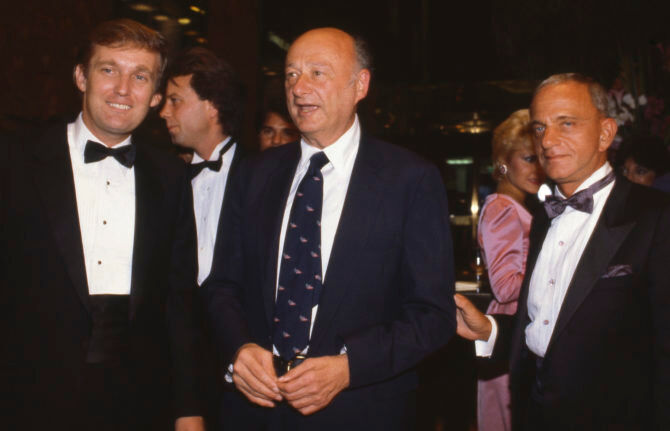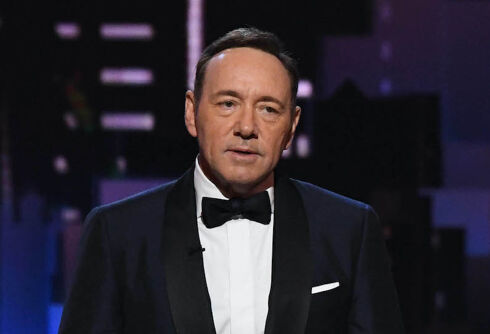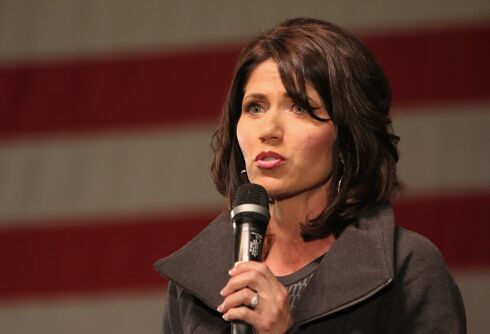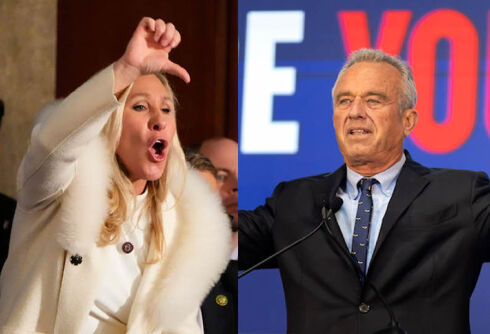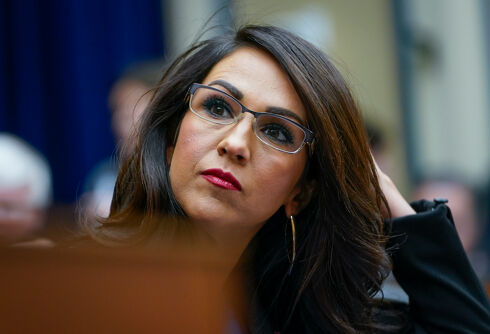Nine years after his death, The New York Times has finally gotten around to admitting that former New York City Mayor Ed Koch was gay.
The story, replete with interviews from long-time staffers and friends “now in the twilight of their lives,” portrays an ambitious politician who banished his partner so he could become mayor, repeatedly lied about being straight, and then lamented as he aged, “I want a partner.”
Related: Republican senators demand warning label for TV shows with LGBTQ characters
The article is a testament to the personal toll that the closet can take on an individual. But it’s also a tale of someone who gladly used the closet to further his own political power, at the expense of his own community, and the media that enabled that charade.
Never Miss a Beat
Subscribe to our newsletter to stay ahead of the latest LGBTQ+ political news and insights.
That Koch was gay wasn’t exactly a secret. When he first ran for mayor in 1977, being out was career suicide, and he knew it, so there was a reason behind his embrace of the closet. Indeed, Mario Cuomo, his rival in the election, denied it was behind campaign signs that read “Vote for Cuomo, not the homo.” (Koch believed that future governor Andrew Cuomo was behind the signs.)
Still, at the time, Koch was a congressman for the West Village, one of the gayest districts in the nation. He could have stayed in Congress and hid in plain sight, and voters would readily have returned him to the House year after year.
Instead, Koch wanted a higher-profile job. There are a lot of members of Congress in New York City. There’s only one mayor.
At the time, Koch was in a relationship with Richard Nathan, a health care consultant. As the campaign heated up, Koch engaged in a highly public “romance” with former Miss America Bess Myerson, the perfect beard. The media gleefully played along.
Once Koch was elected, his associates made it clear to Nathan that he should find a job outside of New York.
Meanwhile, Koch kept declaring himself straight in a way that only underscored his hypocrisy.
“I don’t happen to be homosexual,” he told a radio station. “But if I were, I would hope that I wouldn’t be ashamed of it. God makes you whatever you are.”
It’s easy to dismiss Koch’s actions as a product of the time. But when the AIDS crisis hit, Koch’s personal discomfort exacerbated the public health disaster. His advisers saw AIDS as a gay issue and wanted to protect Koch at all costs. Apparently, the mayor saw it the same way. Old friends reaching out to him recount to the Times how he was simply uninterested in their appeals and failed to use his power of mayor on the community’s behalf.
“This is a difficult issue, given the rumors,” one aide told a GMHC board member who was a onetime friend of Koch’s
Unlike San Francisco, New York City stalled in its response to the epidemic. The city didn’t get around to issuing a comprehensive AIDS plan until 1988. The Koch administration’s point person for AIDS policy was inept and corrupt.
It’s clear that the closet called the shots. Koch was petrified about being outed. Larry Kramer repeatedly called Koch a closet case. At his appearance at a forum on AIDS, Koch was so stressed that Kramer would be there to heckle him (he wasn’t) that Koch suffered a stroke.
Koch last his fourth bid for mayor and settled into a man-about-town retirement. He surrounded himself with a collection of younger gay friends who tried to play matchmaker for him and encouraged him to come out. They failed on both counts.
Yet when Koch died in 2013, no one was willing to acknowledge the obvious. Here’s how the Times described his sexuality in his obit:
Mr. Koch, for whom the headline “Hizzoner” seemed to have been coined, was a bachelor who lived for politics. Perhaps inevitably there were rumors, some promoted by his enemies, that he was gay. But no proof was offered, and, except for two affirmations in radio interviews that he was heterosexual, he responded to the rumors with silence or a rebuke.
It’s notable that the Times still treated the rumor as a kind of slander that required photograph evidence to be true. Meantime, it was widely known in the media world that Koch was gay. One of Koch’s closest gay friends at the time of his death was a former Times reporter who would later out Koch in a book in 2019. The paper, and for that matter, Koch’s friends, kept Koch in the closet as a kind of courtesy to him even after his death.
Interestingly, a number of LGBTQ allies took to Twitter to chastise the Times for outing Koch posthumously. Their argument was that if he wanted to keep his private life private, so be it. The problem is three-fold: Koch was an intensely public figure whose political career hinged on a lie about being straight. His fear of being outed affected his response to the AIDS crisis.
Worst of all, the closet is the biggest enemy of LGBTQ rights. Yes, it’s a private decision. But protecting the closet assumes that there is still shame in being LGBTQ, something unseemly that shouldn’t be shared. It assumes it’s a bedroom issue, in a way no one would ever think about heterosexuality.
The Times story wants you to know the heavy toll that the closet took on Koch. Still, it was of his own making, particularly in his later years, when he could have come out and made some kind of restitution for the lies he told.
Sadder still is the toll it took on the city he led and the people he once loved. The AIDS epidemic took a terrible toll in New York City. It was made worse because Ed Koch was afraid that it might reveal the truth about himself.


